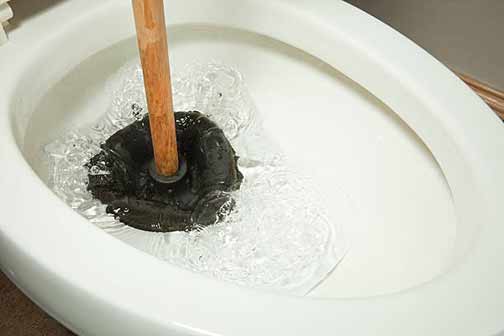
As a renter, one of the main reasons you choose to live in a rented home is the freedom that comes with that decision. For landlords, on the other hand, the primary goal of owning a rental property is to make a profit. These two objectives can clash, notes BridgeHaus Managers.
Landlords and tenants are usually motivated to spend as little money as possible on rental property. Each side tries to pass the responsibility for any particular expense to the other party. That can create clashes between landlords and their tenants.
One area where these kinds of conflicts are common is when dealing with plumbing issues in the rental. Because of the unpredictable nature of plumbing problems and the high cost of fixing water damage in a home, landlords and tenants want to avoid the trouble.
But whose responsibility is it to fix plumbing issues in a rental home? Is there an accepted model for dealing with this problem? Thankfully, there is, and in this post, we will lay out the rules for assigning financial responsibility for plumbing problems in a rental home.
The landlord’s responsibility: Implied warranty of habitability
This is an unspoken promise by the owner that they have taken all necessary steps to ensure their rental property is habitable. Although the promise is unwritten, it is assumed. When a landlord rents their property to a tenant, they automatically imply it is habitable.
What makes a rental unit habitable?
There are many things, but the ones that concern us in this post are hot water and plumbing. Not only must these basic services be present, but the property owner must maintain them in good condition throughout the tenant’s stay.
In other words, the landlord is responsible for ensuring the rental has adequate plumbing. The landlord is also expected to fix all problems with the plumbing as long as those issues are due to natural wear and tear or caused by the proper use of the plumbing.
We can break down the landlord’s responsibility for plumbing problems in their rental unit as follows:
- Do routine maintenance: The landlord is responsible for ensuring that the plumbing is functioning as expected. The property owner must inspect the plumbing on a schedule to identify and address any problems that may interfere with its proper function.
- Fix natural wear and tear issues: As long as the problems in the plumbing are caused by aging, the proper use of the plumbing, or causes outside a tenant’s control, landlords must fix them. For instance, such as when the water pipes burst because the ground shifted.
These rules are based on the fact that the tenant is paying the landlord for the use of their property. Secondly, if the tenant was not in the rental unit, the landlord would still have to monitor the plumbing system to ensure it is in good condition.

Tenant’s responsibility for plumbing problems in a rental
- Protect the landlord’s property: As the person in direct contact with the plumbing, the tenant is expected to protect the landlord’s property. He is not to take actions that will threaten the landlord’s property, including but not limited to the plumbing.
- Pay for plumbing issues caused by him/her: Any plumbing issue that is due to misuse or abuse of the plumbing system by the tenant (whether intentional or unintentional) will be paid for by the tenant. For example, if a toilet clogs because the tenant flushed something into it or a pipe bursts because the tenant turned off the heating, the tenant will bear the financial cost of fixing that problem.
- Inform the landlord of plumbing issues: The tenant is to report all plumbing issues in the rental to the landlord. If the tenant fails to do this, even though they know about the problem, the landlord may require the tenant to bear part of the repair bill. The same applies if a tenant fails to take proper steps to minimize the effect of a plumbing issue they were aware of.
- Protect their property: Tenants are responsible for protecting their property if a plumbing problem occurs. For instance, if the tenant’s property is damaged by water from a burst pipe or overflowing toilet, the landlord is not responsible for fixing the damage.
Summary: who is responsible for plumbing problems in a rental
It depends on the cause of the problem. If the problem is caused by natural wear and tear or proper use of the plumbing, the landlord pays. The tenant pays if the problem is due to the tenant’s actions.
However, in all cases, the property owner will fix the problem with their chosen plumber. If the tenant is later found to be responsible for the issue, they may charge the tenant afterward.
To conclude, we advise that you read the terms of your lease and consult the laws in your state to determine what applies in your particular situation.

